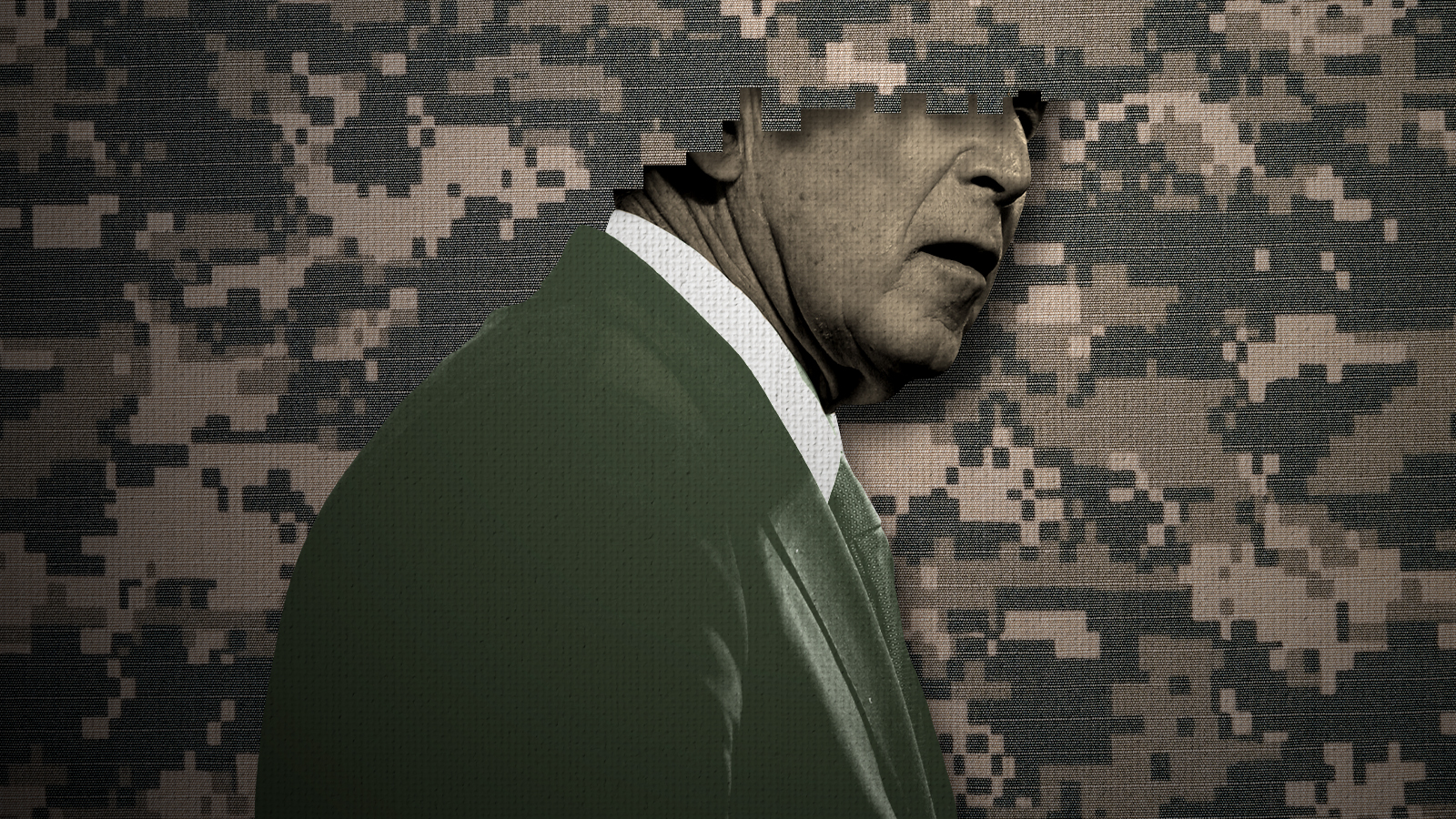George W. Bush refuses to learn the lesson of Afghanistan


A free daily email with the biggest news stories of the day – and the best features from TheWeek.com
You are now subscribed
Your newsletter sign-up was successful
It is sometimes tempting to imagine where the Republican Party would be today if the following scenario had unfolded: After the 9/11 terrorist attacks, Osama bin Laden was captured before he escaped from Afghanistan; the U.S. limited that war to the achievable aims of routing al-Qaeda cells and punishing the Taliban for its noncooperation; we never invaded Iraq at all.
Maybe, given the 2007-08 financial crisis, history would not have changed that much even in that alternate universe. But it's not hard to believe that George W. Bush might have been re-elected in 2004 with something closer to 56 percent of the vote rather than 51 percent, ushering in an even bigger Republican Senate majority than the 55 seats the GOP won in that election. John Kerry would have gone the way of Michael Dukakis, if not Walter Mondale, rather than coming within a whisker in Ohio of winning the White House.
One man who seemingly has not contemplated these counterfactuals: George W. Bush. In a rare public break with one of his successors, Bush told a German broadcaster that the planned withdrawal from Afghanistan was a mistake. "I'm afraid Afghan women and girls are going to suffer unspeakable harm," he said. He added that "the consequences are going to be unbelievably bad."
The Week
Escape your echo chamber. Get the facts behind the news, plus analysis from multiple perspectives.

Sign up for The Week's Free Newsletters
From our morning news briefing to a weekly Good News Newsletter, get the best of The Week delivered directly to your inbox.
From our morning news briefing to a weekly Good News Newsletter, get the best of The Week delivered directly to your inbox.
"They're just going to be left behind to be slaughtered by these very brutal people, and it breaks my heart," Bush said. The U.S. should not wash its hands of Afghanistan post-withdrawal and must evacuate as many Afghan collaborators as is feasible. But the compassionate conservative has learned nothing from the folly of America's longest war.
The war itself created the moral hazard Bush now decries. If we could not change the facts on the ground in Afghanistan with the world's most powerful military there for 20 years and without any plans to do so in the next 20 years, the war cannot go on forever. "America's vital interests and our deepest beliefs are now one," Bush proclaimed in his second inaugural address, promising to spread liberty around the globe. But an unrealistic foreign policy can never be a moral one. A just war must be able to accomplish its objectives. Otherwise it leaves nothing but death, destruction, and misery in its wake.
Bush is a well-meaning man, but he is wrong. Donald Trump and Joe Biden are right.
A free daily email with the biggest news stories of the day – and the best features from TheWeek.com
W. James Antle III is the politics editor of the Washington Examiner, the former editor of The American Conservative, and author of Devouring Freedom: Can Big Government Ever Be Stopped?.
-
 The 8 best TV shows of the 1960s
The 8 best TV shows of the 1960sThe standout shows of this decade take viewers from outer space to the Wild West
-
 Microdramas are booming
Microdramas are boomingUnder the radar Scroll to watch a whole movie
-
 The Olympic timekeepers keeping the Games on track
The Olympic timekeepers keeping the Games on trackUnder the Radar Swiss watchmaking giant Omega has been at the finish line of every Olympic Games for nearly 100 years
-
 Big-time money squabbles: the conflict over California’s proposed billionaire tax
Big-time money squabbles: the conflict over California’s proposed billionaire taxTalking Points Californians worth more than $1.1 billion would pay a one-time 5% tax
-
 Did Alex Pretti’s killing open a GOP rift on guns?
Did Alex Pretti’s killing open a GOP rift on guns?Talking Points Second Amendment groups push back on the White House narrative
-
 Washington grapples with ICE’s growing footprint — and future
Washington grapples with ICE’s growing footprint — and futureTALKING POINTS The deadly provocations of federal officers in Minnesota have put ICE back in the national spotlight
-
 Trump’s Greenland ambitions push NATO to the edge
Trump’s Greenland ambitions push NATO to the edgeTalking Points The military alliance is facing its worst-ever crisis
-
 Why is Trump threatening defense firms?
Why is Trump threatening defense firms?Talking Points CEO pay and stock buybacks will be restricted
-
 The billionaires’ wealth tax: a catastrophe for California?
The billionaires’ wealth tax: a catastrophe for California?Talking Point Peter Thiel and Larry Page preparing to change state residency
-
 Trump considers giving Ukraine a security guarantee
Trump considers giving Ukraine a security guaranteeTalking Points Zelenskyy says it is a requirement for peace. Will Putin go along?
-
 Bari Weiss’ ‘60 Minutes’ scandal is about more than one report
Bari Weiss’ ‘60 Minutes’ scandal is about more than one reportIN THE SPOTLIGHT By blocking an approved segment on a controversial prison holding US deportees in El Salvador, the editor-in-chief of CBS News has become the main story
